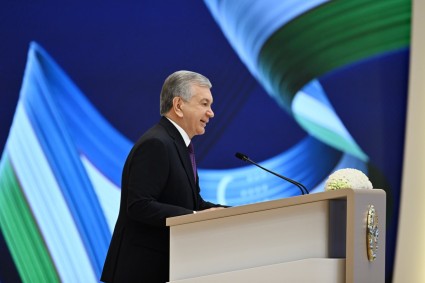The projects that are being implemented in the light industry are aimed at equipping enterprises with modern technology and further increase of finished products share in total output.
If in 1991 the processed cotton fiber share did not exceed 7 per cent, in 2016 this figure reached 40 percent. Today textile products are being exported to more than 50 countries, with Brazil, Chile, Croatia, Nigeria recently added to the list, the Ministry of Economy said.
Presidential Resolution "On measures to further develop the textile and garment industry for 2017-2019" of 21 December 2016 has opened new opportunities for the industry.
"The program foresees the transition by 2020 to full processing of harvested cotton fiber, increase in industrial output by more than 2.7 times," - th deputy Head of department of O'zbekYengilSanoat (state-run company for light industry), Sanjar Tukhtaev said.
The analysis shows that the yarn now makes up almost 50 percent of exports. Our priority is to increase exports of products with high added value thorugh gradual reduction of yarn exports. Currently, the share of finished products in the total output is 47 percent, in the future it is planned to increase this figure to 65.5 percent and increase the share of finished products in the structure of exports from 41 to 70 percent.
As part of the program over 2.2 billion dollars of investment will be drawn to the industry. Investment projects will allow to create special textile complexes and create more than 27 thousand new jobs. It is also planned to launch 120 new and renovate more than 10 companies.
One of the key features of the program is the introduction of new industry standards for design and construction of textile enterprises on the basis of foreign experience. These standards will ensure lower costs for construction works and the use of local building materials. The validity of tax and customs incentives provided to encourage processing of raw cotton have been extended until January 1, 2020.
According to calculations by 2020 cotton yarn will be fully processed at domestic enterprises. As a result will be achieved a in exports of textile semi-finished products will be significant reduced and exports of finished products is expected to increase by 2.1 times.












